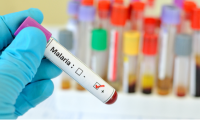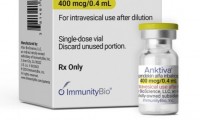-
FDA Approves Utility Therapeutics’ Pivya to Treat Uncomplicated Urinary Tract Infections in Adult Females
- Source: drugdu
- 98
- April 28, 2024
-
FDA Drug Approval Marks a New Day for Treating Pediatric Brain Cancer
- Source: drugdu
- 78
- April 26, 2024
-
FDA Approves Immunotherapy That Can Spare Bladder Cancer Patients From Radical Surgery
- Source: drugdu
- 76
- April 25, 2024
-
【EXPERT Q&A】What is the medical device registration process?
- Source: drugdu
- 133
- April 25, 2024
-
Boehringer Ingelheim Strikes Regenerative Med R&D Deal Spanning MASH & More Liver Diseases
- Source: drugdu
- 87
- April 24, 2024
-
Vertex’s pain drug suzetrigine advances in FDA approval process
- Source: drugdu
- 82
- April 23, 2024
-
ENTOD Pharma gets CDSCO approval for eye drops to treat presbyopia
- Source: drugdu
- 129
- April 22, 2024
-
Weekly insulin analogues approaching approval could herald change
- Source: drugdu
- 104
- April 22, 2024
-
GlobalData
- Source: drugdu
- 120
- April 20, 2024
-
Image-Based AI Shows Promise for Parasite Detection in Digitized Stool Samples
- Source: drugdu
- 126
- April 19, 2024
your submission has already been received.
OK
Subscribe
Please enter a valid Email address!
Submit
The most relevant industry news & insight will be sent to you every two weeks.













